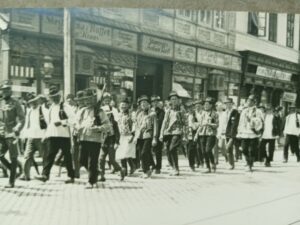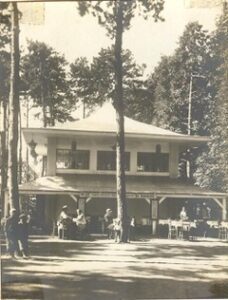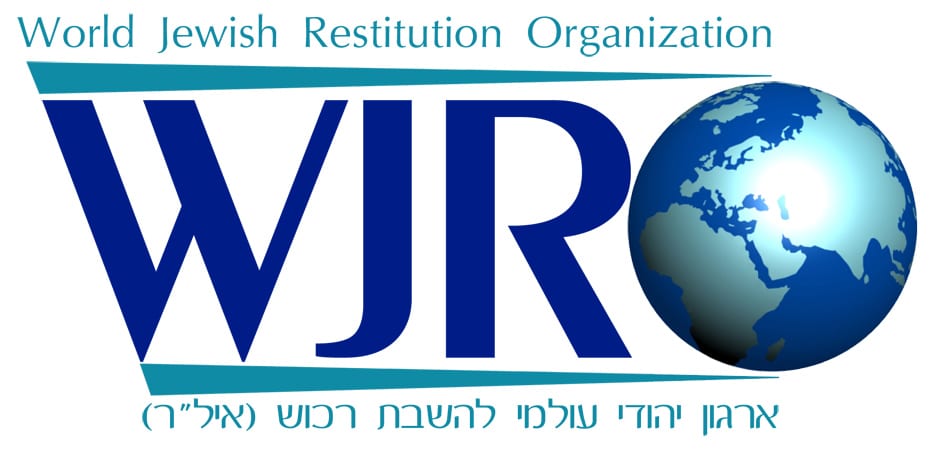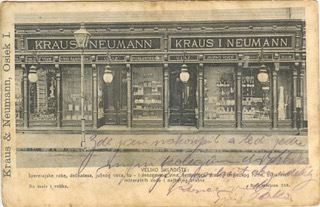Submitted by Marko Eichner
My father is Ri(c)hard Eichner (Ajhner), born in 1932 in Osijek, Croatia and died in December 2010 in Nijmegen (The Netherlands). The mother of my father (my grandmother) was Lili Eichner (Ajhner)-Krausz. The father of my grandmother was Gustav Krausz.
In about 1920, Gustav Krausz, the grandfather of my father, had under the name of “Krausz & Neumann” a delicacy, pastry shop and workshop. This property was nationalized by force (robbed) by the Communist regime during the Ustase. In that time, every Jew was forced to give up their property to the Communist regime.
The following text is taken from a scientific research document by Dr. ZLATA ŽIVAKOVIĆ-KERŽE (University of Zagreb) and is partly readable on the website: hrcak.srce.hr/file/24489
Krausz & Neumann “, owned by Gustav Krausz (delicatessen and pastry shop) in the Capuchin street no. 25th, Osijek
- Gustav Krausz founded the 1920th “Factory sweets and chocolates” in which they were produced all kinds of sweets, especially chocolate and cocoa butter. The factory had its own mechanical workshop for the repair of machinery, and in subsequent years to open its own pasteboard boxes. Employed about 160 workers. Since the 9 January 1942.
Treasury entered into an agreement with the Union Cooperative Insurance, savings and economy “Progress” in Sarajevo, the cooperative is entrusted with the assessment and sale of retail and commercial businesses and properties in Osijek, with the obligation that the said property cannot sell below 80% of the appraised value. Based on this in Osijek on 15 March 1942. Envoy from Napredak visited Cooperative Association and held at 9.00 pm at the Croatian Hall in Upper Town in Osijek Radićeva street 20 (building of today’s Catering and Tourism Schools) meeting with interested parties for the purchase of the estimated and “Progress” has taken over the Jewish stores and other properties that are closely associated with trade. At the meeting, the envoy gave any instructions regarding the submission of applications as well as the requirements for the purchase of trade and real estate. The meeting, along with all interested parties, attended by the trustees of Jewish shops. Napredak’s Cooperative Alliance, the Office for the nationalization of industry, announced in late April 1942nd nationalized fortunes selling commercial and commercial real estate firms that are closely associated with the stores. The right to purchase, at Napredak instructions, had only “persons who meet the requirements of law regarding the working of qualification for running a business that can provide cover for the shopping.” When it was anticipated repayment installment property within 10 years. On this basis, in Osijek from spring 1942. by mid-May 1943. conducted sales. ”Krausz & Neumann”, owned by Gustav Krausz (delicatessen and pastry shop) in the Capuchin street no. 25 was sold on 5 December 1942nd.
The property was taken away by force from my family. The Croatian Government till this day did not gave the property back to my family.
Research about shop grandfather by Croatian person:
I’ve just received these 3 photos of your great-grandfather’s pastry business (2 of his shop in Capuccin Street and 1 of his pavilion at the Osijek Fair in 1928 – all sent to me by a friend and a colleague from the Museum of Slavonia – the senior curator named Grgur Marko Ivanković, who has just started preparing a book about Osijek pastry shops, among which – Marko Grgur says so – your great-grandfather is the absolute queen.
When he finishes and publishes the book, we’ll invite you to its public promotion and if you can, you come here to see this place in person.
Grgur Marko also had a text about this pastry shop in Capuccin Street published in today’s regional newspapers Glas Slavonije / Voice of Slavonia: http://www.glas-slavonije.hr/kolumna/56/5884/Kuca-u-prolazu-Ducani-novcarski-zavod-djecji-vrtic-urednistvo-novina
The photo in it shows the place of the ex-shop today – there is the apartment building there now, constructed in socialism style in 1960s. The big text is about the history of the buildings there since the 1st one at the beginning of the 19th ct., changing owners till your great-grandfather.
The text in the small box is only about Gustav Krausz and his business. It says:
“GUSTAV KRAUSZ’S CONFECTIONERY (PASTRY SHOP)In the first half of the 20th century, to the left of the driveway, this house hosted the famous confectionery (pastry shop) of Gustav Krausz. The beauty of the modern interior design of this pastry shop can be imagined thanks to the preserved number of Art Nouveau stained glass windows (vitrail), which have been kept in the Museum of Slavonia since 1965, when the house was demolished. In addition to this pastry shop, Krausz also had a delicatessen and a chocolate and candy factory, which was founded in 1920. The factory had a department for fine chocolate candies and confetti, for candies, for waffles and wafers under the Karlsbad license, chocolate, cocoa powder and its own confectionery (pastry shop). Krausz’s factory produced cardboard packaging and tin boxes for all its products. At the Osijek Fair, between the two world wars, in its Chinese pavilion, this company served sweets from its confectionery (pastry shop) and the Chocolate and Candy Factory “Osijek” where, according to Hrvatski list (Croatian papers) from 1928, it “demonstrates a completely metropolitan milieu”.




